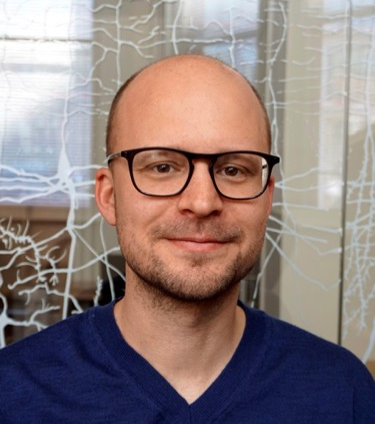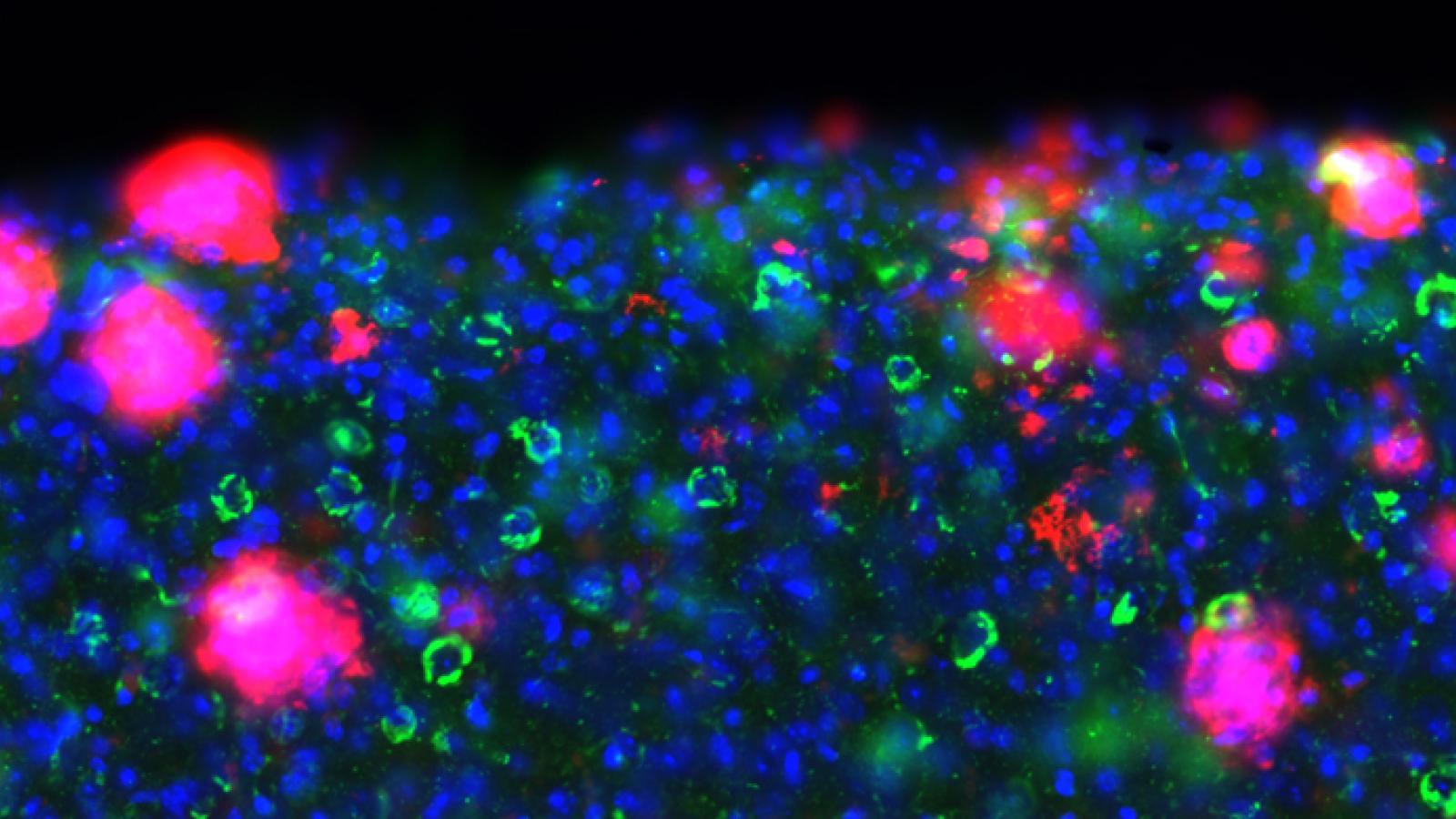Rethinking neurodegeneration: How do brain circuits fail in early Alzheimer's disease?
Recent advances in brain research are transforming our understanding of Alzheimer's disease (AD), showing that the disruption of brain circuits begins many years before the familiar hallmarks, such as plaques and tangles, or obvious memory symptoms appear. These discoveries challenge our traditional views about how and when the disease starts, revealing new possibilities for detecting and treating Alzheimer's at its earliest
stages.
In this special UK DRI research webinar, Dr Marc Aurel Busche (UK DRI at UCL) will share his latest findings on the very first changes that occur in AD. His research highlights how two key proteins involved in Alzheimer's, that is, amyloid beta (Abeta) and tau, have different yet crucial roles in disrupting brain function at different stages. Dr Busche will show how Abeta first affects specific types of brain cells, especially those located in deeper layers of the brain's cortex, causing early disturbances in the brain's communication networks.
He will then discuss why tau is more closely linked to memory loss and cognitive symptoms. His recent studies provide a clear mechanism: specific forms of tau disrupt neurons that play a key role in memory, making these neurons less effective and explaining why tau pathology strongly aligns with progression of disease and symptoms.
Finally, Dr Busche will present important new insights into the normal role of the amyloid precursor protein (APP), which produces Abeta but also plays an essential part in keeping our brain circuits healthy. This finding has important implications, showing that therapeutic strategies targeting APP must be carefully designed to avoid interfering with its normal, beneficial functions.
Together, these discoveries form a new framework for understanding Alzheimer's disease. They emphasise the need for treatments that focus on the earliest changes in brain circuit function, carefully targeting the harmful effects of Alzheimer's proteins while preserving their important roles in the healthy brain.
References
Harris et al., Alzheimer’s disease patient-derived high-molecular-weight tau impairs bursting in hippocampal neurons, Cell (2025)
UK DRI news item
Papanikolaou A, Graykowski D, Lee BI, Yang M, Ellingford R, Zünkler J, Bond SA, Rowland JM, Rajani RM, Harris SS, Sharp DJ, Busche MA. Selectively vulnerable deep cortical layer 5/6 fast-spiking interneurons in Alzheimer's disease models in vivo. Neuron. (2025)
UK DRI news item
Samuel S. Harris, Rikesh M. Rajani, Jana Zünkler, Robert Ellingford, Mengke Yang, James M. Rowland, Alexander Schmidt, Byung Il Lee, Marten Kehring, Mariam Hellmuth, Francesca Kar Wey Lam, Dominique Fässler, Susanne Erdinger, David P. Wolfer, Carlo Sala Frigerio, Fred Wolf, Bradley T. Hyman, Ulrike C. Müller, Marc Aurel Busche, The amyloid precursor family of proteins in excitatory neurons are essential for regulating cortico-hippocampal circuit dynamics in vivo, Cell Reports, Volume 44, Issue 6, (2025)
UK DRI news item
Notes
- The webinar will be chaired by Dr Rikesh Rajani (BHF-UK DRI Centre for Vascular Dementia Research at Edinburgh)
- The webinar is open to all internationally but the content and discussion will be aimed at a researcher audience

Dr Marc Aurel Busche
Group Leader, UK DRI at UCL
Dr Marc Aurel Busche is a psychiatrist and neuroscientist at the UK Dementia Research Institute at UCL. His major focus is to understand the cellular and circuit mechanisms that underlie the initiation and progression of Alzheimer's Disease (AD) and related disorders so that, through this understanding, more effective therapies can be developed. He also provides patient care as an honorary consultant psychiatrist in the cognitive disorders clinic at the Queen Square National Hospital for Neurology and Neurosurgery. Dr. Busche attended medical school at the Ludwig Maximilians University of Munich, and completed his clinical training in psychiatry and psychotherapy at the University Hospital of the Technical University of Munich. He is the recipient of several awards and fellowships including a UKRI Future Leaders Fellowship.

(Chair) Dr Rikesh Rajani
Group Leader, BHF-UK DRI Centre for Vascular Dementia Research at Edinburgh
Following his undergraduate degree at the University of Cambridge, Dr Rikesh Rajani began his research into the causes of white matter damage in small vessel disease and vascular dementia during his PhD with Anna Williams at the University of Edinburgh. He then worked with Anne Joutel at INSERM in Paris to study inherited forms of small vessel disease, and with Marc Busche at the UK DRI at UCL to investigate the interactions between white matter and neuronal activity in Alzheimer's disease. Dr Rajani is now back at the University of Edinburgh, where his lab works to further understand how white matter is damaged in dementia as part of the BHF-UK DRI Centre for Vascular Dementia Research.
